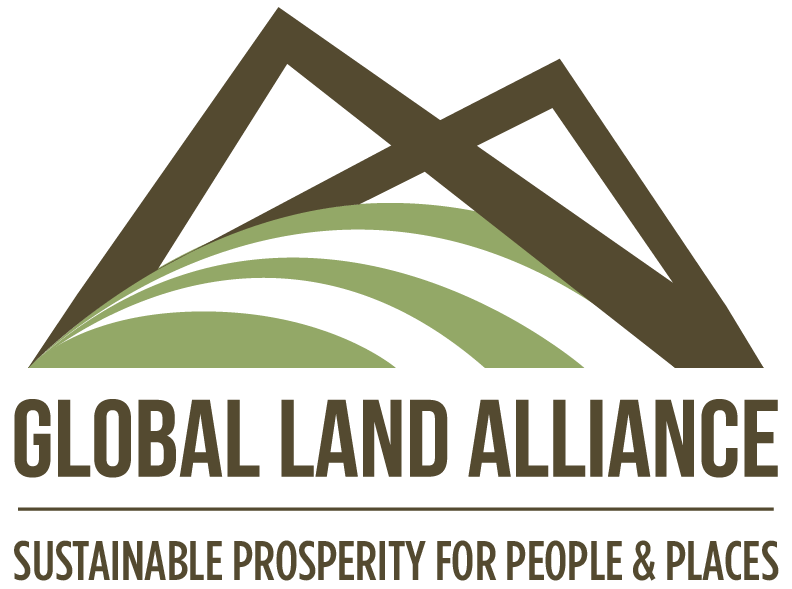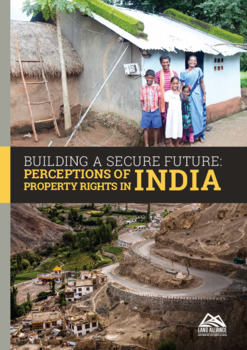Location
The mission of Global Land Alliance is to enable the prosperity of people and places by advancing learning and practice to achieve land tenure security and the efficient, inclusive and sustainable use of land and natural resources.
We aim to accelerate quality development by resolving land issues with new paradigms of participation and accountability. We are a think-and-do tank focused on resolving land issues to address four critical development challenges:
- Food security and the challenge of sustainable food systems.
- Environment and the challenge of sustainable ecosystems.
- Urbanization and the challenge of sustainable cities.
- Conflict and the challenge of sustainable peace.
Global Land Alliance takes the traditional think tank model a step forward, not only producing new understanding and recommendations based on on-the-ground perspectives of citizens, community leaders and businesses, but also channeling those learnings toward practical implementation at scale. By scaling and speeding up resolution of land issues, we can scale up and speed up improved results in the big issues of our time: urbanization, food security, environmental sustainability and peace.
Global Land Alliance is committed to finding solutions to the complex development challenges of cities, rural landscapes and forests through the power of allying local, national and international resources in innovative ways. We seek to harness the values inherent in land, place and natural resources to drive socially inclusive and ecologically-grounded development. We act as a catalyst for change by mobilizing local action, managing knowledge, driving accountability, and developing long-term capacities. We seek to be a positive disrupter of status quo situations that keep people in poverty and insecurity, misuse resources and inhibit local growth.
Members:
Resources
Displaying 21 - 25 of 29Building a Secure Future: Perceptions of Property Rights in India
To understand more about people’s perceptions of the security of property rights, in India and in the rest of the world, we launched a series of surveys. The first survey was carried out with 14,000 respondents in 14 states across India. We plan to do similar research in other countries, building up to a global survey that will reveal similarities and differences between societies when it comes to people’s perceptions of property rights.
BUILDING A SECURE FUTURE: PERCEPTIONS OF PROPERTY RIGHTS IN LAND ALLIANCE FOR PROSPERITY OF PEOPLE & PLACES INDIA
How worried are people, especially in poorer communities, about the risk that they could lose their homes or their land? The idea behind this initial survey is simple: to find out if people are worried about their existing property rights or lack of them – whether women or men, owners or tenants, in cities or in villages. The survey results reveal that insecurity of property rights is widespread in India, with about one in four owners and about half of renters expressing worry about losing their home.
Reframing Investments in Land Information Systems for Land Administration
How much should investments in new land administration systems cost? How can we disentangle and compare costs of land administration investments across countries? How can policy-makers know if they are getting value for money and achieving long-term sustainability from investments in land administration systems?
Scaling up Amka Mwanamke (Woman Arise) Campaign in Response to Women’s Land Rights
General
What to be done and why? The project intends to empower more women, give them more voices to advocate for their rights for them to have full control over land resources. In Tanzania customary practices often, require women to access land through their fathers, brothers, husbands or other men who control the land. This makes women vulnerable and decreases agricultural productivity. When women lose their connection to this male relative, through either death, divorce or migration, they can lose their land, home and means of supporting themselves and their families. Direct beneficiaries Direct beneficiaries: 5,000 vulnerable women and girls Expected impact: Proportion numbers of women in Muleba and Bukoba Districts have adequate access to and control over land resources. Direct project results/ outcomes: Increased capacity, knowledge and skills among marginalized women on their rights to have access to and control over land. Village and Ward Land Councils are accountable and ensure equitable distribution of land resources for women. Increased access to information, education and communication services and materials for women about land distribution, land registration and land rights. Prominent people, political and religious leaders, local leaders and traditional land owners are first agents for change in advocacy to land registration, land rights and land ownership for vulnerable women. Expected outputs of the projects Lessons learnt on the previous project achievements documented and shared with policy makers. 75 paralegals trained on land rights for women 25 Ward Land Councils trained and strengthened 140 members of Ward Land Councils trained. Quarterly dialogue meetings with prominent, local leaders and traditional land owners convened. 1 District Women Friendly Resource Centre (WRC) established and 1 WRC strengthened 75 Women informal groups on advocacy for land rights formed and supported IEC materials developed and distributed, media coverage on women’s rights aired out Implementing partners: TAMA is the implementing partner. They will work and s strengthen collaboration with Muleba and Bukoba District Councils particularly Legal Officers, Land Officers, Village Land Councils and Ward Land Councils and paralegal women Link to the website: www.tama.or.tz




